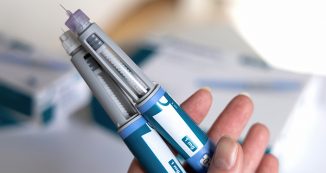27 Jan SUGAR Study Seeks Cardiovascular Risk Reduction Strategies in Kidney Disease

Ian De Boer, MD, MS
A unique fellowship experience training in nephrology and endocrinology got Dr. Ian de Boer, Associate Professor of Medicine at the University of Washington, interested in chronic kidney disease (CKD) and its wide range of metabolic abnormalities. These dual interests in have converged in his latest project, SUGAR: Study of Glucose and Insulin in Renal Disease.
SUGAR is an observational, cross-sectional study that seeks to define insulin resistance and its correlates in patients with moderate-severe CKD. An estimated 26 million Americans have CKD, and insulin resistance is believed to be a potential cause of accelerated cardiovascular disease in this population.
“The goal of SUGAR is to identify abnormal physiologic processes in CKD so we can improve cardiovascular outcomes,” explained Dr. de Boer. “By identifying biochemical and lifestyle factors linked with abnormal metabolism, we hope to then be able to develop therapeutic interventions targeting insulin resistance in CKD patients.”
Dr. de Boer has recruited 98 participants to make three study visits each so he and his team can better evaluate the role insulin resistance plays in cardiovascular disease. These visits are intended to measure the insulin sensitivity, insulin secretion, and glucose tolerance of participants using gold standard methods of testing (i.e., euglycemic clamp, intravenous glucose tolerance test, and oral glucose tolerance test).
Participants also undergo a dual energy X-ray absorptiometry (DEXA) scan to determine their body composition. Physical function tests take place to assess strength, balance, and functional capacity. In addition, participants are asked to track their daily physical activity and food intake. Collectively, these efforts serve to provide a holistic view of a participant’s physiology so that the study team can identify the severity and determinants of impaired glucose metabolism in CKD.
To implement his study protocol, Dr. de Boer turned to the adult Clinical Research Center (CRC) at the Institute of Translational Health Sciences. The CRC offered the requisite outpatient rooms, research nurses, nutrition services, and exercise and body composition equipment for the study. He also worked with the ITHS biomedical informatics team for support identifying eligible participants to recruit from the UW Medicine system.
“This is a labor intensive study, so it can only be conducted on a very advanced unit with the appropriate nursing staff, equipment, and pharmacy services,” shared Dr. de Boer. “The CRC is a fabulous resource for detailed physiologic studies, and they have a lot of highly skilled people with a lot of research resources.”
Dr. de Boer believes this study, once finished, will provide the necessary data to identify potential biochemical and lifestyle abnormalities in CKD patients. Identification of these abnormalities will then allow for the design of larger epidemiologic studies and clinical trials that allow better targeting of insulin resistance.
To learn more about how ITHS can support your research, please visit the ITHS website or contact the ITHS Research Navigator.







